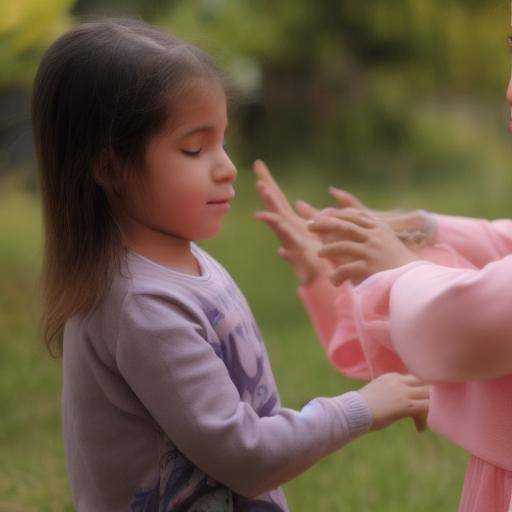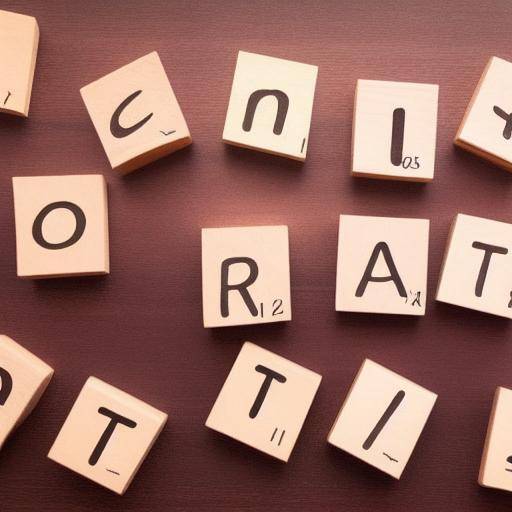
Gratitude is a powerful emotion that connects us with the world around us. In turn, it strengthens our ability to empathy, allowing us to understand and share the feelings of others. In this article, we will explore in depth the influence of gratitude in the development of empathy and how these two elements contribute to emotional well-being. We will begin to understand the history and background of gratitude, empathy and its relationship with emotional well-being.
Introduction
Gratitude is more than just a "thank you." It is a complex emotion that implies appreciating what you have, recognizing the acts of goodness of others and connecting with the world in a meaningful way. On the other hand, empathy is the ability to understand and feel what another person is experiencing. Both concepts are fundamental to foster healthy relationships and build an empathic society.
In this article, we will explore how gratitude impacts empathy, and how both contribute to emotional well-being. We will analyze the history and background of gratitude and empathy, discuss in detail the advantages and challenges of cultivating these qualities, and provide practical advice to foster gratitude and empathy in everyday life.
History and Background
Gratitude has been studied and practiced throughout history in various cultures and traditions. It has been documented in ancient philosophies such as stoicism and Buddhism, as well as in the teachings of great religious leaders. Empathy, for its part, has been the subject of interest in fields such as psychology and sociology, with important advances in understanding their mechanisms and their importance for individual and collective well-being.
Gratitude to the Length of History
Gratitude has been considered a virtue in many cultures throughout history, from ancient civilizations to contemporary traditions. In ancient Greece, gratitude was associated with justice and reciprocity, while in oriental traditions such as Buddhism and Confucianism, it was considered an essential practice for harmony and spiritual well-being.
Evolution of empathy
Empathy has been the subject of study and reflection in various disciplines over the centuries. From the first philosophical descriptions in ancient Greece to modern advances in psychology and neuroscience, the understanding of empathy has evolved significantly. In the 20th century, figures like Carl Rogers and Daniel Goleman contributed to popularizing the importance of empathy in fields such as psychotherapy and leadership.
Significant Milestones and Developments
Throughout history, significant milestones related to gratitude and empathy have emerged. From the formulation of psychological theories to the emergence of social movements focused on empathy and compassion, these milestones mark key moments in understanding and promoting these qualities in society.
Analysis in Deep
Benefits of Gratitude
Gratitude has been linked to a number of benefits for emotional well-being. The regular practice of gratitude has been associated with lower levels of stress, greater satisfaction with life and greater emotional resilience. In addition, gratitude has shown promoting healthy interpersonal relationships and fostering positivity in general.
The Challenges of Cultivating Empathy
Although empathy is a valuable quality, it can pose challenges for those who practice it. Empathetic tiredness and emotional overload are potential risks for those who commit to empathy in a constant way, highlighting the importance of establishing healthy limits and practicing self-care.
Current Trends in Research
Current research continues to explore the benefits of gratitude and empathy in various areas, from psychology to neuroscience and sociology. Progress in fields such as positive psychology has led to a greater focus on promoting gratitude as a tool for emotional well-being, while social neuroscience has shed light on the underlying mechanisms of empathy and its role in human behavior.
Comprehensive review
Applications Gratitude and Empowerment Practices
Multiple studies and experiences have demonstrated the effectiveness of practices such as carrying a daily of gratitude, expressing sincere gratitude and fostering empathic relationships in personal and professional environments. These practical applications not only benefit individuals, but can have a positive impact on organizations and communities in general.
Best Practices and Lessons Learned
The effective implementation of gratitude and empathy requires a deep understanding of best practices and lessons learned. Identifying effective strategies to promote gratitude and cultivate empathy in different contexts can contribute significantly to individual and collective emotional well-being.
Detailed Analysis of Pros and Contras
While the benefits of gratitude and empathy are widely recognized, it is important to critically consider their possible limitations and challenges. This detailed analysis helps to better understand the balance between promoting gratitude and empathy and managing realistic expectations in various environments and situations.
Comparative analysis
Gratitude and empathy share key elements in their impact on emotional well-being. Both qualities foster meaningful connections with others, promote authenticity in interpersonal relationships and contribute to a deeper sense of mutual understanding and support. However, they also present significant differences in terms of their practice and impact at the individual and social levels.
Practical Tips and Accessible Tips
Strategies to Cultivate Gratitude and Empathy
Providing practical strategies to cultivate gratitude and empathy in everyday life can have a significant impact on the emotional well-being of readers. These strategies may include reflection exercises, full care practices and methods to improve emotional connection with others.
Step-by-Step Guides and FAQ Section
- **What techniques can I use to practice gratitude daily?**Explain different methods, such as the diary of gratitude or the verbal expression of gratitude, and its benefits.
- **How can I improve my empathic capacity in difficult situations?**Provide concrete steps, such as active listening and recognition of the emotions of others.
- **Is there cultural differences in the expression of gratitude and empathy?**Analyze cultural differences in the practice of gratitude and empathy, and provide guidance on how to navigate these differences respectfully.
Perspectives of Industry and Opinion
Interviews with Experts and Professionals
Including perspectives of experts and professionals in fields related to gratitude, empathy and emotional well-being can significantly enrich the content. These interviews offer a profound and insightful insight into practical applications and challenges in promoting gratitude and empathy in various environments.
Analysis of Future Trends and Implications
Exploring current trends and possible future implications related to gratitude, empathy and emotional well-being can enrich readers' understanding of the extent and importance of these qualities in the modern world.
Case Studies and Practical Applications
Cases of Study Detailed and Results
Including detailed study cases that illustrate the effective application of gratitude and empathy in real environments can provide concrete and practical examples for readers. These case studies reveal the tangible results of promoting gratitude and empathy in various situations and contexts.
Examples of Different Industries and Contexts
Explore various examples of the application of gratitude and empathy in different industries and contexts, such as the educational, business and community, provides a holistic view of opportunities and challenges in promoting these qualities.
Future Trends and Predictions
Predictions Based on Current Trends
Based on current trends and emerging research, it is possible to foresee how gratitude, empathy and emotional well-being could evolve in the future. Exploring these predictions offers readers an informed view of the potential impact of these qualities on society.
Conclusions and FAQs
Conclusions
Gratitude and empathy play a key role in promoting healthy relationships, promoting emotional well-being and building more compassionate societies. By cultivating gratitude and empathy, individuals can enrich their lives and contribute to collective well-being.
Frequently asked questions
How can I encourage gratitude in working environments?
Promoting gratitude in working environments can have a significant impact on organizational culture and employee satisfaction. Genuine recognition of achievements and expression of gratitude can promote a positive working environment.
What is the relationship between gratitude and self-esteem?
Gratitude has been linked to higher levels of self-esteem, as it allows people to value their own experiences and achievements, fostering a positive view of themselves.
Is it possible to develop empathy at any age?
Although empathy can be cultivated at different stages of life, it is in childhood and adolescence where the fundamental basis for the development of empathy is established.
Does gratitude and empathy have an impact on mental health?
Yes, both qualities have shown a positive impact on mental health, contributing to stress reduction, improving emotional resilience and promoting a more positive view of life.
What is the role of gratitude in building solid relationships?
Gratitude strengthens relations by fostering an environment of mutual support and recognition. In expressing gratitude, the emotional bond between people is strengthened, which contributes to stronger and more meaningful relationships.
What is the impact of promoting empathy in diverse communities?
Promoting empathy in diverse communities can contribute to intercultural understanding and strengthening social cohesion. Empathy is a key tool for addressing differences and promoting inclusion.
Final words
Strengthening empathy through gratitude is a journey to the deepest connection with ourselves and others. By practicing gratitude and cultivating empathy, we contribute to a more understanding and solidarity world, enriching our lives and those around us.






















































